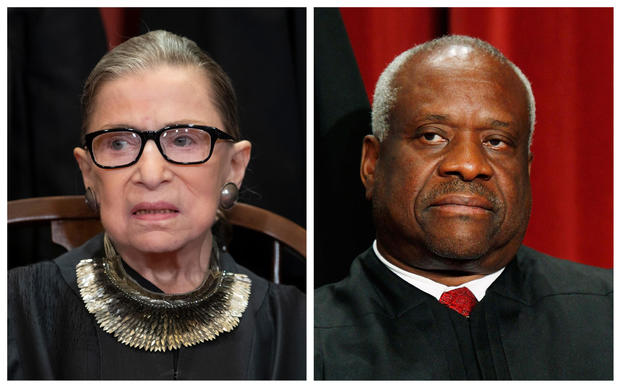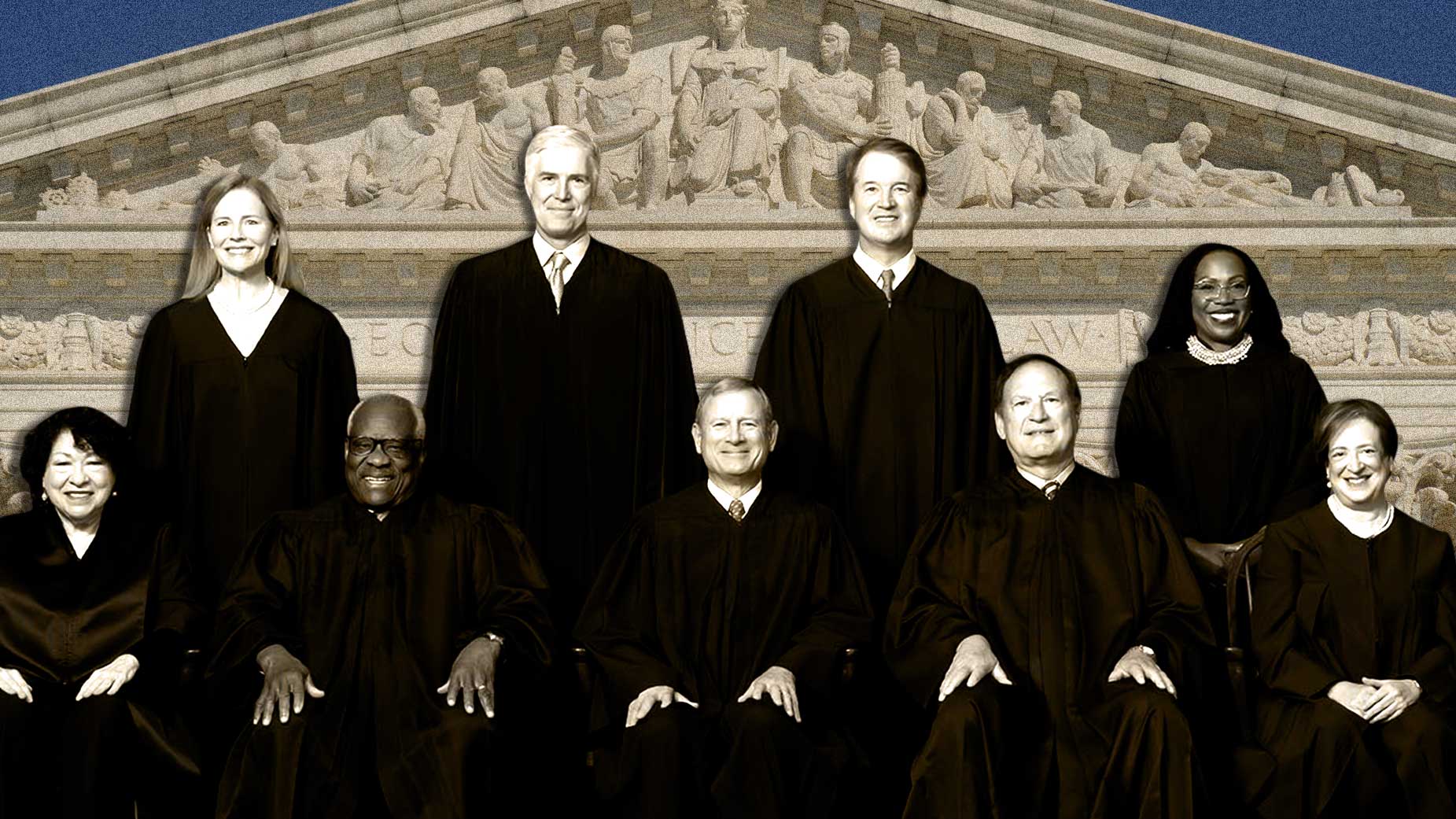In abortion case, Ruth Bader Ginsburg disputes Clarence Thomas' use of the word "mother"
While the U.S. Supreme Court this week upheld an Indiana abortion law that requires aborted fetuses to be disposed of in the same way as human remains. The justices declined to uphold a second provision, which would prevent a woman in Indiana from having an abortion based on the fetus's gender, race or disability. Two opposing justices released sharply-worded opinions chiding each others' views in the process.
Justice Clarence Thomas supported the "Sex Selective and Disability Abortion Ban," which would have made it illegal for abortion providers in Indiana to perform abortions in cases where they know "that the mother is seeking the abortion solely because of the child's race, sex, diagnosis of Down syndrome, disability, or related characteristics," he wrote in his opinion.
Ginsburg took umbrage with the use of the term "mother," which was consistently used by Thomas to describe a woman getting an abortion. "A woman who exercises her constitutionally protected right to terminate a pregnancy is not a 'mother,'" Ginsburg wrote.
She also added a pointed remark: "Justice Thomas' footnote ... displays more heat than light."
The issue of abortion rights is an important one to Ginsburg, who was a prominent women's rights lawyer committed to fighting for gender equality before she was named to the high court. Not only did Ginsburg join her colleagues' dissent of the first provision, she wrote her own separate opinion on the "Sex Selective and Disability Abortion Ban."
Ginsburg wrote that it is a waste of the Court's resources "to take up a case simply to say we are bound by a party's 'strategic litigation choice' to invoke rational-basis review alone."
"I would therefore deny Indiana's petition in its entirety," Ginsburg wrote. Thomas replied in a footnote, writing that Ginsburg's "dissent from this holding makes little sense."
"It is not a 'waste' of our resources to summarily reverse an incorrect decision that created a Circuit split," Thomas argued.
With the addition of Justice Brett Kavanaugh last fall, the Supreme Court is split between five conservative and four liberal justices. The justices divided 7-2 in allowing Indiana to enforce the fetal remains measure that had been blocked by a federal appeals court. The bill had been signed into law by Vice President Mike Pence when he was governor of Indiana.
Pence praised the court's decision on Twitter Tuesday. "As Governor of IN I was proud to sign a law that requires remains of aborted babies be treated w/dignity & respect," Pence wrote. "Today's decision by the Supreme Court was a victory for life!"
In a second tweet, Pence highlighted Thomas's opinion in the case. "Today, Justice Thomas wrote: SCOTUS has been zealous in the past in barring discrimination based on sex, race, & disability. Hopeful someday soon SCOTUS will recognize the same protections for the unborn when they rule on future appeals of pro-life legislation," Pence wrote.






